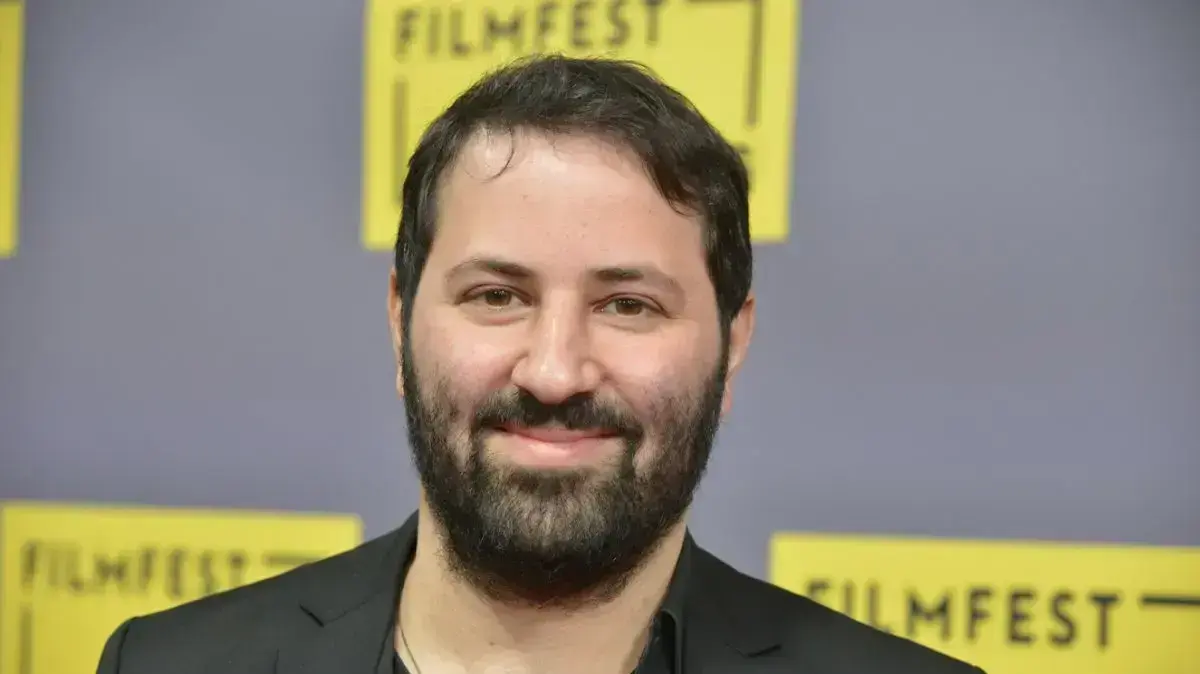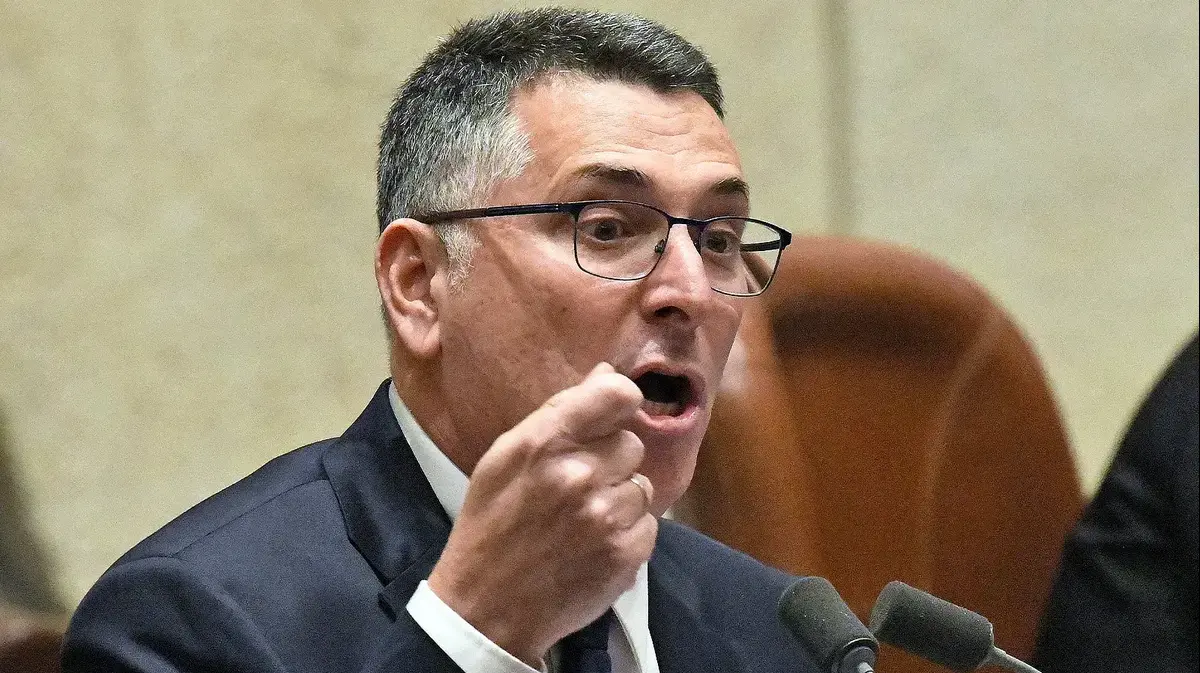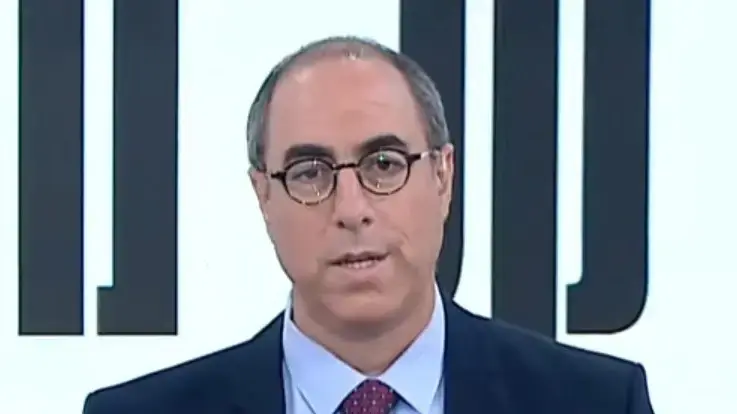Trailer for the movie "America" (Nachshon Films)
It's easy to attack the extreme right for its treatment of the LGBT community, but it's important to remember: even in the supposedly liberal domestic film industry, only a few queer films have managed to integrate into the mainstream. For example, if we look at the winners of the Ophir Prize in recent years, only one of them placed a relationship at the center Same-sex: Ofir Raoul Greitzer's "The Baker from Berlin," which won this and many other awards, and was also an impressive box office success, turning its screenwriter-director into one of the most prominent and unique local filmmakers of recent times.
Now, Greitzer is back with a second film, " America", as befits its name, is soon to make a nice tour in the United States, and among other things will open the Jewish Film Festival in New York. Before that, it will be released tomorrow (Thursday) in Israel, and will hope to repeat the success of "The Baker from Berlin".
Unlike "Baker from Berlin", "America" has no homosexual relationships, nor are there any cakes or references to Berlin.
Michael Moshunov, in his best film role to date, stars as a young Israeli who fled to America and changed his name, but was forced to return to his past following a family tragedy.
Tragedy follows tragedy when he arrives in Israel, and this time a childhood friend, played by Ofri Bitterman, and the friend's fiancee - played by Teglait Osherat Ingdasht, who deservedly won the best actress award at the last Jerusalem festival for her performance here, are also involved in the chain of events.
Dr. Shmulik Dovdevani, who is as knowledgeable as he is in the history of Israeli cinema, wrote that, like "The Baker from Berlin", "America" belongs to the tradition of European melodramas, of the type created by the famous German director Rainer Werner Fassbinder, making Greitzer the first local director to create a Falcon This artist since the late Amos Gutman in the early nineties.
will open the Jewish festival in New York.
From "America" (Photo: Omri Aloni)
Greitzer does not reject this definition.
"Melodrama is life," he says in an interview with Walla!
Culture for the distribution of the film.
"In my opinion, the greatest films ever made are films that have melodrama, or elements of melodrama. I like melodramas the most and I like emotion the most - that's the thing that's most important to me in cinema. Cynicism doesn't speak to me. Life is dramatic. If you sit on the bus and start talking to people , every person you meet has a story more crazy and bizarre than any novel ever written."
"Personally, my friends say that I am a cynical and pessimistic person, but my films wish for a more humane world and go against cynicism. The humane approach is important to me, and I think it is also necessary where we are, not only politically but also culturally."
Greitzer, like one of the heroes of "The Baker from Berlin", lives in the German capital, but came to visit Israel on the occasion of the premiere of the film here.
He defines himself as homosexual, and landed with us when his community is under attack.
"I didn't expect to be greeted with flowers and roses. Violence, racism and homophobia have always existed, and have never been the property of one party or another. Everything is exposed," he says.
"I'm not a diplomat. This government is terribly scary. Note something interesting: the first decision I read about it is to lower the tax on sugary drinks and disposable utensils. Be right-wing, be a settler, but why are you doing something that harms future generations, something that hurts all children regardless They? It's a crazy thing. Isn't it a shame for your children's health?".
"America" deals with many issues.
One of them is the violence that hides here under the surface, even in the seemingly peaceful bourgeois environment in which the hero grew up.
"To be Israeli is to grow up amidst violence, no matter where you are," says the creator.
"Being Israeli means that if you have an older brother, then one day he comes home with a 16-M. This is not normal, and it is something that is built into our society and culture, and unfortunately we cannot escape it."
More in Walla!
These are the best movies of 2022
To the full article
One of the most aesthetically impressive films seen here.
From "America" (Photo: Omri Aloni)
The most violent character in the film is played by Michael Moshunov.
Was it important to you to break the cliché of Israeli cinema, according to which the Mizrahi plays the violent character?
"Yes, absolutely. The violence I'm talking about comes from the bourgeoisie - from the Ashkenazi home that is modeled only apparently. Even in such an environment there are children who are beaten and gays who are kicked out of the house. It does not belong to one sector."
The origin of Osheret Ingdasht is Ethiopian.
Were you looking for an actress of this origin?
"In the original script, this was the whitest character you can describe - someone who grew up in the 20th century and came out with a question at the age of 15. When I started casting, I happened to see Osherat in the movie 'Shoelaces' and she intrigued me terribly. I loved her energy and her smile. She was the first actress I auditioned for the role, and even though later I examined many other actresses, she always remained at the top of the list, and I kept coming back to her."
Both in "Baker from Berlin" and in this film, your interest in the faces of the actors and actresses is evident.
You like to use close-ups, and you make the most of them.
"Close-up is one of the most wonderful things in cinema. This ability to see a human face on a ten-meter screen. The close-up allows you to get close and touch, look at the small details, notice the nuances, and feel something that is so human and basic. Another wonderful thing is the zoom, which allows you to keep a distance and yet get closer - the camera stands still, but the lens moves towards the character. There is something almost spiritual about this movement. Close-ups and zooms are the tools that separate cinema from everything else, and are the purest things in it." .
Amazing discovery.
Usher Ingdasht in "America"
From the movie "America" (Photo: Omri Aloni)
Can you talk about working with Michael Moshunov?
"I could write you a book about working with Michael. He is a great actor, and he took this role to the end. The highlight for me was the symbiosis that was created between him, Ofri, and Usher. The first time the three met, I let them tear apart a parsley leaf together for twenty minutes, and they were immediately A click and a feeling that they have known each other for a long time."
Break together a parsley leaf?
What is this, the Stanislavski method?
"It's Ophir's method, it's something of mine. I like to give actors physical actions."
Ophir method.
Ophir Raul Greitzer with the Ophir award for "The Baker from Berlin" (Photo: Liron Moldovan)
"America" is one of the most aesthetically impressive films made in Israel.
Everything in it is incredibly beautiful and colorful: from the pool where the hero works as a swimming instructor, through the flower shop where the fiancee of his childhood friend works, to the local landscapes where the climaxes of the plot take place.
The credit goes to Greitzer as well as to his partners, including photographer Omri Aloni and art designer Daniel Kossou, who also happens to be the director's partner.
"My vision was to produce a film that is full of beauty and goes all the way with the tones and the colors," explains the director.
"It wasn't easy. It's not very Israeli and it's supposedly inelegant. When we were working on the color corrections, they told me, 'It's two matches.' The hero, it's blue. He went through a violent trauma in his childhood, and the blue of the sea, the water and the pool are what saved him from it."
Of all the possible professions, why is the hero a swimming instructor?
"Because water is a very significant thing for me. It symbolizes immersion, redemption - something in the creation of the earth. I wanted each figure to symbolize one of the elements of life. One is the water, one the sun, one the earth, and the air comes from all three. It's not something I I like to explain, but you asked - so I answer."
Greitzer has been spending quite a bit of time in America in recent years, but he visited it for the first time only a few years ago, at the age of 38. "I never had the money to go to the United States," he explains.
"America was not a real country for me, but a kind of dream land across the ocean. When the hero of the film wants to escape and reinvent himself, he goes to America, because it represents a completely different existence."
The hero changes his name when he comes to America, have you ever thought of doing that too?
Change Ofir Raul Greitzer to something more catchy?
"Why, God bless you. It's a beautiful name, and I love it. Raul is named after my grandfather, and Ofir causes me some problems abroad, because they don't know how to pronounce it - but I will never change the name."
And what about Change the name of the film? Was it always "America" or was there hesitation?
"There was an international distributor who said he would only buy the film if I changed the name.
He gave me stupid advice for other names - 'Scent of Sage', 'The Florist' and such.
We went to another distributor."
His best film role so far.
Michael Moshunov in "America" (Photo: Omri Aloni)
The "Pinocchio" brand recently returned to the headlines following Guillermo del Toro's film on Netflix, and stars here as well.
In one of the climax moments of "America", one of the characters hears the theme song of "Pinocchio" - this time in the animated version from the 1980s, which we all grew up with on the educational television of the time.
"It's a song by a Czech composer, who starred in a Japanese series. Dathia Ben-Dor wrote the Hebrew translation, and Raya Admoni sang it, so in short - there were many parties to turn to in order to get the rights," Greitzer explains.
"After tough and cross-border negotiations of six months, we managed to put most of the pieces of the puzzle together, but we didn't locate the original recording, so we had to restore the song. We turned to Raya, who still produces the same voice, and was happy to donate it again. And so we found We ourselves are in a studio in south Tel Aviv, re-recording the song, forty years after the original version."
Why did you insist on this song so much?
"Because it symbolizes the story of the character who listens to it - a child who gets off the ropes, is recreated and becomes a real child. It is also a song that has the nostalgia and innocence of childhood, and it is also essential to the film. I recommend you look for this animated series on YouTube. It is an amazing series ".
Let's go back to the "Baker from Berlin" for a moment.
You received a lot of comments on the film.
What were the most exciting or surprising responses?
"The film is about someone who died suddenly, and after his death those close to him discover that he was living a double life, and many people came up to me with tears in their eyes and shared with me that they had experienced a similar story. Making a work that touched people, what could be more exciting and wonderful?
The most exciting there is.
From "The Baker from Berlin" (Photo: Omri Aloni)
The Israeli-American producer Uri Singer, whose production "White Noise" just appeared on Netflix and caused a lot of resonance, at the time acquired the rights for a remake of "The Baker from Berlin".
What's up with that?
"The truth is, I have no idea. I am completely not involved in this and am not connected. I can only say that I am still receiving inquiries about the rights of the film, from production companies who do not know that we have already sold them."
Unlike "Baker from Berlin", in "America" the relationships are heterosexual.
As a gay man, what is your perspective on straight characters?
"A lot of gay men today are trying to fit a model of classical masculinity, while straight men are cultivating themselves in a metrosexual direction. This whole thing about masculinity is really evolving and changing. I can't relate to straight masculinity as a whole, but I am against machoism and brutality, And these are things that are still identified with her.
"In general, I'm not that interested in the gender or the sexual orientation of the characters - what interests me is trying to find the humanity in the characters, whatever they may be. What's more, I certainly try in all my films to challenge the classic models of masculinity, and to present straight men who are Sensitive men with a big heart too."
culture
Theater
Cinema news
Tags
Michael Moshunov
The baker from Berlin














